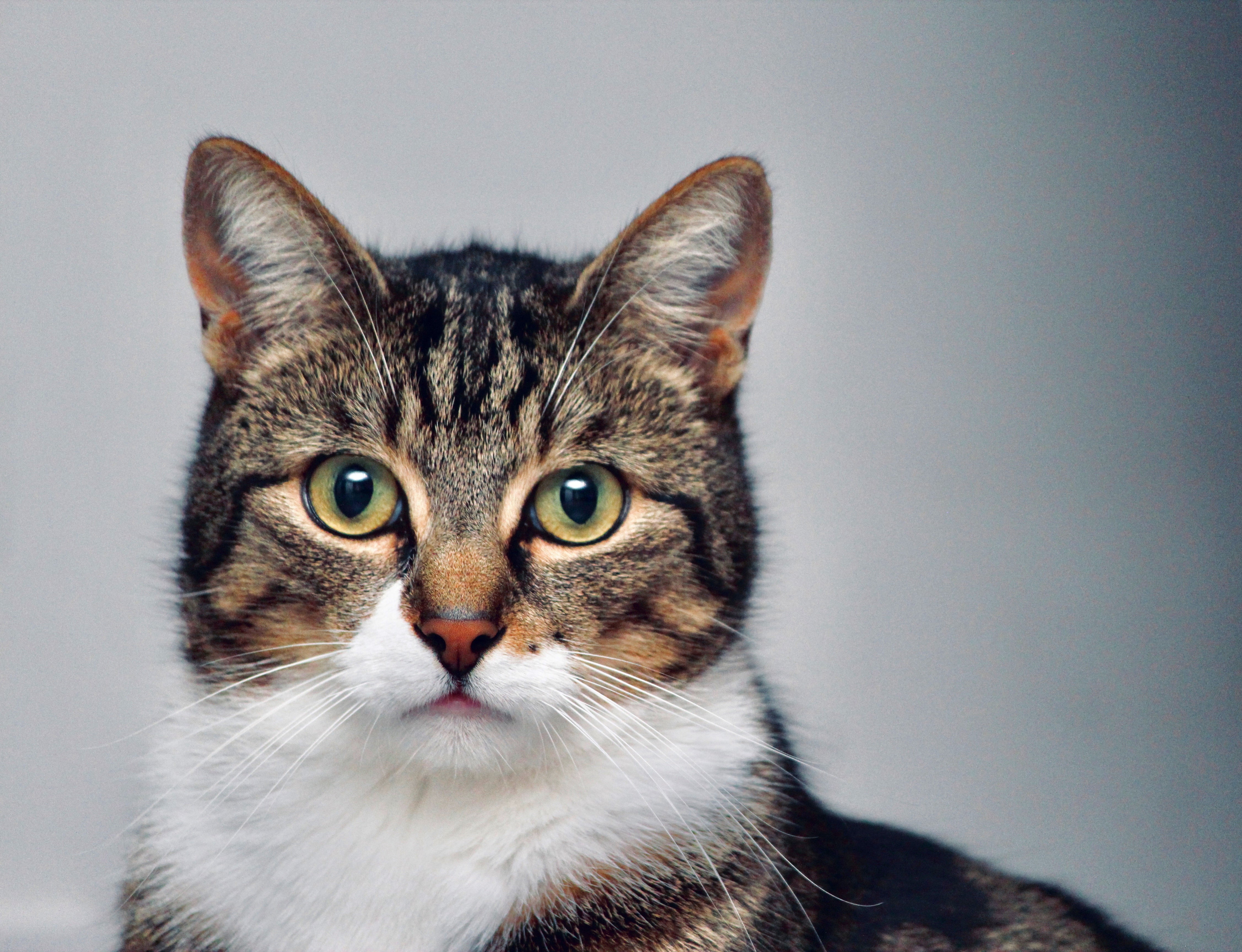Feeding is an important aspect of pet ownership, which is why we’ve put together this guide on the best food for cats.
What you feed your cat will affect their overall health and well-being. They need the right balance of energy and nutrients to give them the best life possible.
We want every cat to grow up strong and healthy and have the energy to play all day, so follow the tips on this page and you’ll be giving them everything they need to live life to the max!
What is the best type of food for cats?
The best type of food for cats is a high-quality complete food suitable for their life stage – and, of course, one they like the taste of too!
If you’re new to cat ownership, you’ll quickly learn that your cat has their own personal preferences when it comes to food, and they certainly won’t be shy about letting you know what they prefer.
While we recommend using the right food for the relevant life stage, everything else will be up to you them.
Cats have three main life stages and there are foods to suit each:
- Kitten – wet or dry kitten food
- Adult cat – wet or dry adult cat food
- Senior cat – wet or dry adult or senior cat food
There is a little crossover as you can see, and there’s no right or wrong answer when it comes to wet or dry.
Your cat’s nutritional needs will vary as they grow, but choosing a ‘complete’ cat food ensures that it has all the nutrients they need.
Regardless of which food you choose for your cat, make sure they always have access to fresh water. Change their water every day and clean their bowl regularly, or use a cat water fountain to simulate running water to encourage them to drink more.
Vegan and vegetarian diets
Cats are different from humans when it comes to food. They need certain nutrients that are only found in meat, which are essential for their health, including their heart, eyes and skin.
This means that a vegan or vegetarian diet isn’t suitable for them. Feeding your cat a non-meat diet can lead to serious health problems. To keep your feline friend healthy, it’s best to stick to a diet that includes meat.
Raw food diets
As an alternative to traditional packaged cat food, some cat owners opt for raw food diets made from raw meat and vegetables. While these raw diets can provide essential nutrients, they can also pose potential health risks for your cat.
Homemade raw diets can be challenging to get right, so if you’re considering feeding a raw diet to your cat, we recommend a commercially prepared, complete raw food that’s packed full of nutritional goodness to ensure your cat’s meals are healthy.
Should I feed my cat wet or dry food?
There’s no wrong answer here! Whether you feed your cat wet or dry food depends on their preferences and your lifestyle.
Dry food is sometimes recommended by vets to maintain good dental health, but as long as the wet or dry food is ‘complete’ and suitable for your cat’s life stage, you can simply choose whatever your cat prefers.
Lifestyle can also play a part in what you feed your cat.
If you have a busy schedule or travel frequently, dry cat food might be more convenient due to its longer shelf life and ease of portion control. On the other hand, wet cat food can be a better choice if you prefer a more natural, moisture-rich diet for your cat and have the time for regular feedings.
What is the best food for kittens?
The best food for kittens is…kitten food. It may sound obvious, but we see and hear many new cat owners asking whether they can feed their kitten adult food.
The simple answer is no.
Kitten food is specially packed full with extra calories and protein to support optimal growth and development during their first year of life. It gives them the energy they need to play, explore and spend quality time with their human.
Kitten food is ideal for growing cats once they’re weaned up until they are fully grown at around 12 months old.
When you first take your kitten home, it’s usually best to feed them the same food that they’re already used to eating while they settle in. You can introduce a different food if you want to change their diet, but do this gradually so you don’t upset their stomachs.
We would recommend starting with wet kitten food as it will be easier for them to digest and more gentle on their tiny teeth.
For portion sizing, follow the feeding instructions on the cat food or take a look at our kitten feeding chart. Your kitten will always seem hungry and will always eat whatever you put down!
Following these guidelines is important so you don’t leave your pet hungry. And don’t be tempted to overfeed them as this can lead to obesity and impact their health in the long run.
What is the best food for adult cats?
A cat is regarded as an adult when they are between one and seven years old. During this time, you have the most choice of cat food.
As long as you buy a good quality complete food, you can feed them wet, dry or a mixture of both.
A normal, healthy cat can eat any type of adult food. You’ll see different types of food, such as indoor cat food, neutered cat food and other specialist types.
It’s up to you to decide which is most appropriate for your cat, but more importantly, your cat will decide which one it likes the most!
If your cat has any medical conditions or health concerns, work with your vet to decide which food is best.
What is the best type of food for senior cats?
Your cat will be classed as senior once it’s over seven years old. The best type of food for senior cats is either adult or senior cat food. You’ll need to consider your cat’s age, overall health and any vet recommendations.
If your cat is in good health and your vet agrees, standard complete adult cat food may be fine.
However, if your cat is very old or they have health issues, a senior cat food may be more suitable. Senior cat food has a different balance of calories and nutrients designed specifically for older cats who may be slower and not as good at keeping off the pounds!
Feeding your cat
If you buy good quality, complete cat food that suits their life stage and follow its feeding instructions, you can’t go too wrong.
Let your cat guide you in whether they prefer wet food, dry food or a mix of both, and control their portions to avoid overfeeding.
You can use technology to help manage their feeding schedule if you need to. Automatic pet feeders are great for when you’re away at work and cat water fountains can help them stay hydrated throughout the day.
Finally, watch and listen to your cat as they eat. They can be picky eaters and may not like everything you feed them!
Food for cats FAQ
Can cats eat human food?
Cats should not eat human food as they should get all the nutrition they need from a complete and balanced cat food. That said, some human foods are safe as an occasional treat.
Cats can eat cooked meat such as chicken and cooked deboned fish like tuna in moderation, but remember to adjust their portions accordingly to avoid overfeeding them.
Some human foods are toxic to cats, so always check with your vet beforehand.
Can I give my cat treats?
Yes, you can give your cat treats, but remember to feed them in moderation.
You can make your own homemade cat treats or buy a packet of treats from the pet shop, just be mindful of how many treats you feed. Keep them as an occasional treat or for training and try to avoid overfeeding treats wherever possible.
What food is toxic to cats?
There are several foods that are toxic to cats. Try to avoid feeding them anything containing onion, garlic, bones, raw egg, chocolate, caffeine, grapes or raisins, alcohol or too much raw food as it can make them very ill. Always check with your vet if you’re unsure.
What do I feed my pregnant cat?
If your cat is pregnant, many vets recommend feeding her a quality kitten food. The extra energy and nutrition will come in very useful while she is growing kittens. There are also specialist foods designed for the mother and her kittens, so ask your vet for recommendations.

